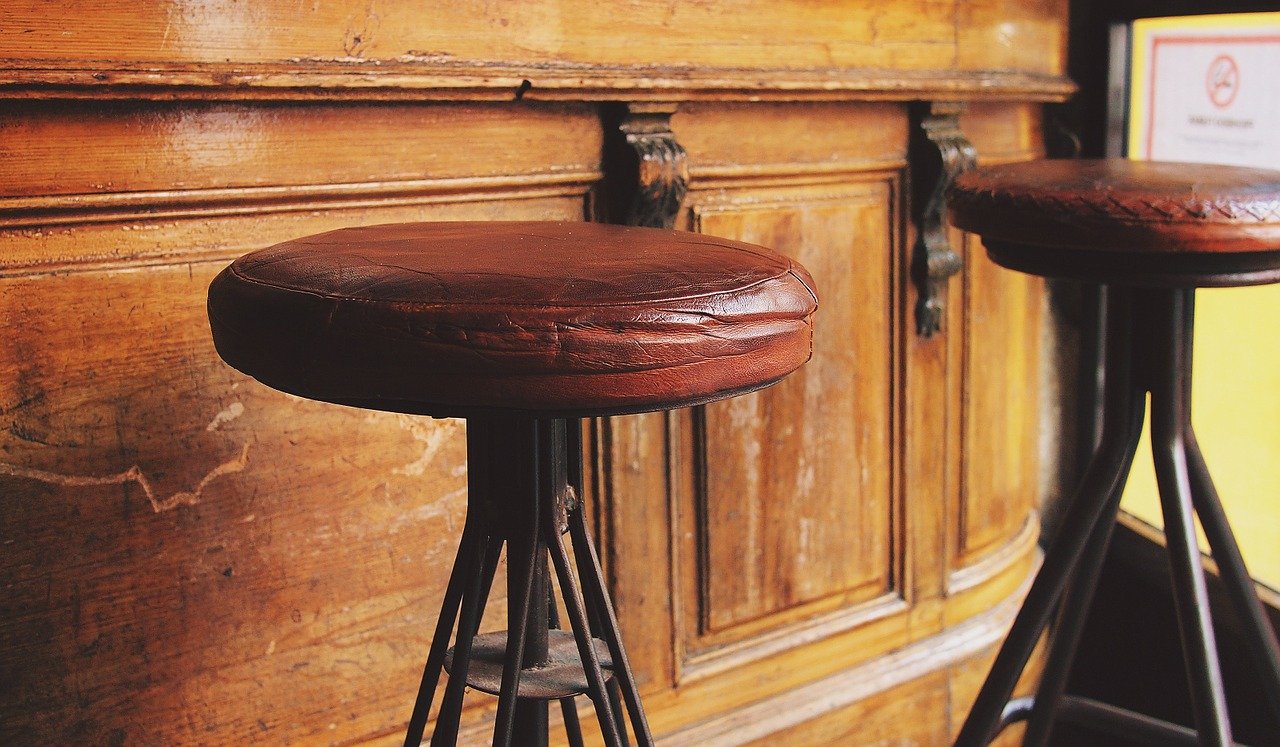“Do you know how fast you were going?”
Not fast enough, you don’t reply.
You have somewhere to be, and you can’t get there quickly enough. It’s not your own bed (that’s where you just came from) and it’s not her bed (that’s where you won’t be coming again, anytime soon); it’s the house you are usually driving away from at this hour, hoping to find the way home through half-shut eyes.
You’ve seen this little piggy before, you think, as he holds his flashlight expectantly in your face. And not just in those recurring nightmares where you manage to be the good guy and the bad guy; you recognize him and hope he doesn’t recognize you. Maybe it’s a blessing in disguise, you think, as he asks the question you never thought you’d want to hear.
As a matter of fact, I have not been drinking, you say, so self-assured you start to second guess yourself, on principle.
Maybe you should bring him along—just in case—you think, as he takes your 411 to the squad car to make sure your references check out.
Maybe this is divine intervention, you think, forgetting, for a second that it’s been a long time since you remembered to believe in that kind of crap.
Maybe it’s best to keep the law out of this, you know, signing on the thin black line. That’s the last thing anyone needs: a man with a badge busting in on a desperate man with a gun.
***
There are certain elements that must fall into place in order for a mostly grown-up man to become friends with his best friend’s father. First, the best friend needs to no longer be a best friend, or at least be out of the picture—say, in another part of the country. Second, his father must be recently widowed, or divorced, or otherwise apart from the best friend’s mother. Third, and most important, your own folks must either be far away, or nothing at all like friends, or perhaps both.
Take a guy, like yourself for instance, and put him in a bar, alone on a work night, feeling sort of sorry for himself, and eventually he notices another guy, an older guy, also on his own, who has resorted to sweet-talking something on the rocks. That might be me, you think, and before you have a chance to follow that thought someplace you’re not comfortable going, you realize: the reason he looks so familiar is because you know him. It’s been several years since you’ve seen his son, but you used to know him like you knew yourself—in a neighborhood you came to outgrow the way you outgrew games and bikes and friends and exchanged them for jobs and cars and co-workers.
Yes, that’s him all right, the man who was an alternate father back in the day. Actually, he was always more like an uncle, letting you sneak those first sips in a time when there were only two types of beer: Heineken for special occasions; Budweiser for all the others.
You don’t mind if he does. So what brings you up here, you don’t need to ask.
Got nothing better to do, he doesn’t bother to reply.
Instead, he talks about how his son has decided to stay out in California because he realized he liked the seasons, so long as they were all summer.
“I know how you feel, sort of,” you say. “My parents just joined every other retired couple down in Florida.”
Then you joke about whether an earthquake will put his boy in the Pacific before the fulcrum of old folks will break the southern tip into the Atlantic.
“I was gonna catch a cab,” he says, after you’ve managed to toast some of the things you usually make it a point not to talk about. .
“No, I can get you home,” you say. You remember the way.
“So…what happened?” you ask, after accepting the invitation inside for a nightcap and awkwardly hearing about what he couldn’t find a way to tell you.
“She’s gone,” he says, knowing it’s not enough.
“Gone?”
“Well…she left. Six months ago.”
You’re not sure what is more uncomfortable: what he’s just confessed, or how obvious it must now be that you haven’t spoken to his son in so long that you hadn’t already heard his wife was no longer part of the picture.
“Can you believe it?” he asks, later, after a lot of other forgettable, forced things have been said.
As you reach for your keys, after respectfully being able to refuse one more for the road, you walk away convinced of two things, the one worse than the other: you probably shouldn’t come back; and you know you’re going to.
Besides being your best friend’s father, he was the only adult you were allowed to call by first name. When you watch the re-runs in your memory filed under Childhood, he is a featured player, looming larger than teachers, coaches and even those literary characters that are often among the best friends any introspective adolescent learns to find. Unlike your extremely careful, caring and Catholic parents, he seldom seemed to say the word no: he always made popcorn during the ceaseless string of slumber parties, he took you to movies—back in the day when Rated PG actually signified something, he mixed up Shirley Temples with extra cherries and, later, virgin strawberry daiquiris—back in the day when saying the word virgin was more scandalous than the idea of a cocktail sans alcohol. He was also an unabashed smoker of Salems — which meant accessible cigarettes (back in the day when sneaking menthols was cool).
In short, he comprised a crucial part of your coming-of-underage.
So: you begin going over once a week. He hasn’t lost his touch in the kitchen—the same touch you never found—and he masterminds meals just like a thousand other nights all through the ‘80s. You eat, you listen to old blues albums, you watch movies, you embellish adventures from the good old days and try to avoid any mention of the bad new days. Most of all, you drink. He makes a mean martini; he makes a nice martini too. He knows his wine, he knows his single malts, he even has beer from countries that haven’t discovered electricity. Always obligatory cigars and cognac before last call; the host slumped over in his leather chair, snifter safely empty in lap, scorned Cuban smoldering in ashtray.
Like the unsullied early stages of any relationship, you enjoy the rush, eventually settling into a routine. Predictable and mostly pleasant, until the night he pulls a gun on you.
“So…” he says, slurring, not that anyone’s noticing. “How come you haven’t sold your soul so far?”
“You mean marriage? Well…” you recognize the stale response, as it happens to be the truth. “I guess I just haven’t found the perfect person yet.”
He snorts and nods his head.
“You’re smarter than most people; too many young men need to make a mistake before they figure out how happy they were.”
“Are you happy now?”
You both look around the room to see who the idiot is who just asked that question.
“Never been happy,” he says, then quickly adds: “Never been happier I mean.”
You both laugh, but it only helps a little. Good time for a bathroom break. You take your not-so-sweet time, and when you return there is a gun on the table where his beer used to be.
“How come you haven’t asked me what happened?”
Because I don’t want to know, you don’t say, finding your seat.
But your silence won’t suffice. So:
“Another man?”
“Even worse than that.”
“Another woman?”
“Nothing.”
“Excuse me?”
“Nothing! She’d rather be on her own than be with me.”
Silence.
“Do you have any idea what that’s like?”
More silence, which seems better than any other options you can come up with.
“I’ll tell you this,” he says, uncomfortable with the silence (it’s mutual), or where his imagination is invariably going, or both. “If there was another man, I’d shoot him, you know…if he ever came around here.”
He picks up the gun—a snub nose? Colt 45? Revolver? Whatever it is, it looks a lot like all the other ones in all those movies you like to watch where fake people pump fake bullets into fake bodies forming pools of fake blood.
“I never thought I could kill a man, unless maybe they were breaking into my house, which is why I have this,” he holds the gun up, menacing an intruder that isn’t in the room.
He stands up unsteadily (To get more beers? To put on more music? To go to the bathroom? To go to bed?) and does the one thing you hoped would not happen: he tightens his grip, stabbing the air as he speaks.
“Do you know what it feels like to look in the mirror and know that everything you ever worried about is coming true? You are old, you are ugly, you are angry, and you’re alone.”
I never think about those things. You can’t say. To yourself.
Everyone made it out alive, and here you are, another week, another dinner, another drink, another inexorable lull in the conversation where someone might slip up and say something substantial.
“There’s something I want to show you,” he says, standing up.
Oh no, your eyes say.
“Here it is…the real reason my wife left me,” he adds, apparently without irony.
“What number is this?”
“The fourth. So, including my son, I’ve had five babies.” Again, no apparent irony.“He Who Dies With The Most Toys Wins,” the bumper sticker says.
The first Porsche was not a mid-life crisis, unless it’s possible to have a mid-life crisis at thirty-two. Of course, our fathers formed a generation that did everything earlier, either because they figured it out faster or learned the truth too late: married before twenty-five; kids born before thirty; second mortgage for college tuition by thirty-five; quiet desperation in full effect by forty.
“Wanna see what she’s made of?”
“Hell yeah. Next time I’m over let’s take her for a whirl.”
“Next time? Why not right now?”
“Do you know how fast you were going?”
He hands his license smilingly to the cop and shrugs his shoulders, neither defiant nor necessarily contrite.
“Sorry about that officer…just blowing off some steam.”
“Doing seventy-five? You do know what the speed limit is on this road, don’t you?”
“Probably a lot less?” he tries.
“Probably reckless,” the officer answers.
“Damn, I didn’t even know this thing could go that fast!”
The officer is not amused.
“Actually, there’s troubles at home,” he says, switching gears more artfully than you could ever have imagined. “Taking a little ride with my son here. My wife left.”
And then two miracles occur: the officer does not ask if we’ve been drinking, and lets us go without so much as a warning.
After the valedictory cocktail, still too nervous to drive, you opt for crashing on the couch instead of into a tree. It’s a sleepover full circle from the ‘80s.
Is this the way it works? You don’t ask as the room spins into sleepiness. Of course cops can arrest foolhardy kids, they should; they have to. But it doesn’t make anyone feel good to haul in a man old enough to know better. Or maybe it is just dumb luck. Fate, as only the truly unlucky understand, waits until you are on the ropes, then moves in with ever-humbling haymakers. Perhaps even Fate wouldn’t stoop this low; pouring ketchup on a man with a lot to lose, while he’s bleeding.
Morning. Your host is already dressed and brewing coffee before you can get off his couch.“Need a Bloody Mary?” he calls from the kitchen.
The only response more irresponsible than this offer would be to refuse it.
“Shit. I need to stop drinking,” he announces. “It’s just as simple as that.”
“Me too,” you say. “Want to give it a shot?”
“Actually, I put in two shots,” he says, handing you the drink. Apparently without irony, you think.
More of a man than you, he’s on his way to work while you’re on your way to your own couch. No way of earning a dishonest day’s pay, not today: you’ll pay your dues in equal installments of sweat and regret.
You still have hangovers, thank God.
Everyone who has known an alcoholic knows that as soon as you stop feeling the pain, it’s because you are no longer feeling the pain; you are no longer feeling much of anything.
Everyone can think of a friend whose father (or mother for that matter), we came to understand, was in an entirely different league when it came to the science of cirrhosis. The man who falls asleep fully clothed, then up and out the door before sunrise, like the rest of the inverted vampires who do their dirty work during the day in three-piece suits. Maybe it’s a martini at lunch, or several cigarettes an hour to take the edge off. Whatever it is, whatever it takes, they always make it out, and they always come back, to the family and the refrigerator, filled with the best friends anyone can afford.
Our friends’ fathers are men who actually have rye in their liquor cabinets—who still have liquor cabinets for that matter. These are men who were raised by men that never considered church or sick-days optional, and the only thing they disliked more than strangers was their neighbors. They are men who didn’t believe in diseases and didn’t drink to escape so much as to remind themselves exactly what they never had a chance to become. Theirs was an alcoholism that did not involve happy hours and karaoke contests; theirs was a sit down with the radio and a whiskey sour, a refill with dinner and one before, during and after the ballgame. Or maybe they’d mow the lawn to liven things up, tinker under the hood of a car that had a long way to go before it could become a classic. Or perhaps friends would come over to play cards. Sometimes a second bottle would get broken out. This was a slow burn of similar nights: stiff upper lips, the sun setting on boys playing baseball, mothers sitting on the couch watching TVs not yet paid-off, of forced smiles battling bottled tears in the bottom of a coffee mug, of amphetamines and affairs, evening papers and a creeping conviction that there is no God, of poets unable to make art out of the mess they’d made of their lives.
It was a hard time where people did not live happily ever after, if they ever lived at all. It was a time, in other words, not unlike our own.
Take a guy, like yourself for instance, and put him in a bar, alone on a work night, feeling sort of sorry for himself. Naturally, he notices the good-looking girl across the bar looking at him. And the reason she looks so familiar is because you know her, in many senses of the word. And before you can figure out what to think about this—what to think—she is on her way over.
“Buy you a beer?”
You don’t mind if she does.
“So…what brings you here?”
“Looking for someone.”
“I guess you knew where to find him?”
It wasn’t too complicated; she does not need to say.
So…what happened?
You find yourself alone again, on your way home, away from a warm bed and a warmer body that most likely won’t be welcoming you inside anytime soon.
“That is so sweet,” she’d said, after you explained how you’d come to befriend your best friend’s father.
“Well, it was fun while it lasted,” you started to say.
“So…what happened?”
And you told her the story: dinners, movies, drinks and the day divorce papers were filed. The day he decided, once and for all, to dry out.
“I got the call,” (you said), “and showed up fully supplied: steaks, a bottle of France’s finest and Italy’s most expensive, even some champagne, in case it turned into that kind of evening, in case we needed to toast something.”
“And?”
“And he said: It’s over.”
“I know,” you’d said. “That’s why I broke out the heavy artillery.”
“No. It’s over. I’m done. No more martinis, no more vino, no more hangovers, no more nothing.”
“Well, that’s wonderful!” (she said).
I guess so (you thought). “But, well, when we weren’t drinking, everything was different. I tried, but the dinners were just…different. He was different.”
“Well, what did you expect?”
“I don’t know. I just know that all of a sudden there wasn’t anything to talk about. Or, actually, there was too much to talk about. Every time I thought of something to say, it seemed like the wrong thing. He didn’t want to talk about her; I didn’t want to talk about you…we ended up talking about nothing.”
“So…what happened?”
“What do you expect? It all got too uncomfortable, I just sort of stopped going over.”
“That’s terrible.”
“You’re telling me! That was a free meal once a week.”
“That’s not funny.”
“No, really. I mean this guy knew his wines, and where else am I gonna score authentic Cubans?”
“You are pathetic.”
“Well, what did he expect? What was I supposed to do, be his godamn shrink?”
“You were supposed to be his friend.”
“Look at it this way,” (you said) after you’d attempted to say several things, each of them increasingly ineffective and ill-received, “If I had been there tonight, I wouldn’t have been at the bar to see you!
So: what happened?
She went looking for the guy she thought she remembered.
So what was the problem?
She found him.
Phone ringing.
“Hey, it’s me…”
A blast from the past—a voice from back in the day when saying it’s me meant you knew exactly who it was.
It’s your former best friend, sounding like what he is: someone you haven’t heard from in a long time; like someone’s son.
“Listen, I’m worried about him,” (he calls his dad by his first name, just like you always did, back in the day).
“He called me,” he says.
He called me too, you don’t say.
“And he said some stuff that really upset me, and that’s why I’m calling you…”
You don’t say anything.
“He called me your name, ” he says, after he’s gone on to other things, some of them familiar, some of them shocking, and some of them more than a little incriminating. “And before he hung up, he said: Come and get my gun.”
***
So: the cop lets you go, without a warning and with a ticket, a little something to remember him by. And you think: What am I going to do? What am I going to see? What am I supposed to say?
He does not say anything: after you’ve knocked, rang the bell, and eventually let yourself in. There he is (sobbing), there’s the gun (waiting), there is a mess: bits of bottles everywhere. In the sink and on the floor, a small fortune of broken spirits, dying angry deaths in the open air. He has destroyed all the things that could hurt him, the new enemies he could no longer resist the old fashioned way.
And so: should you be appalled, or at least embarrassed? Unprepared, you remember the backyard baseball games, crying during a scary TV show, or pissing your pants, and all the forgotten things you did because you didn’t know any better. And this man, always there, because it was his job. The man who could have been your father, now old enough to be a grandfather. This man who needs someone who is not there, so now it’s your job.
You look around: nothing cooking in the kitchen, no movies or music in the background, no beers in the refrigerator—there is nothing left, including excuses. You take a deep breath and then say in a voice very unlike your own, “Talk to me.”
Share this post with your friends.





2 thoughts on “Come and Get My Gun by Sean G. Murphy”